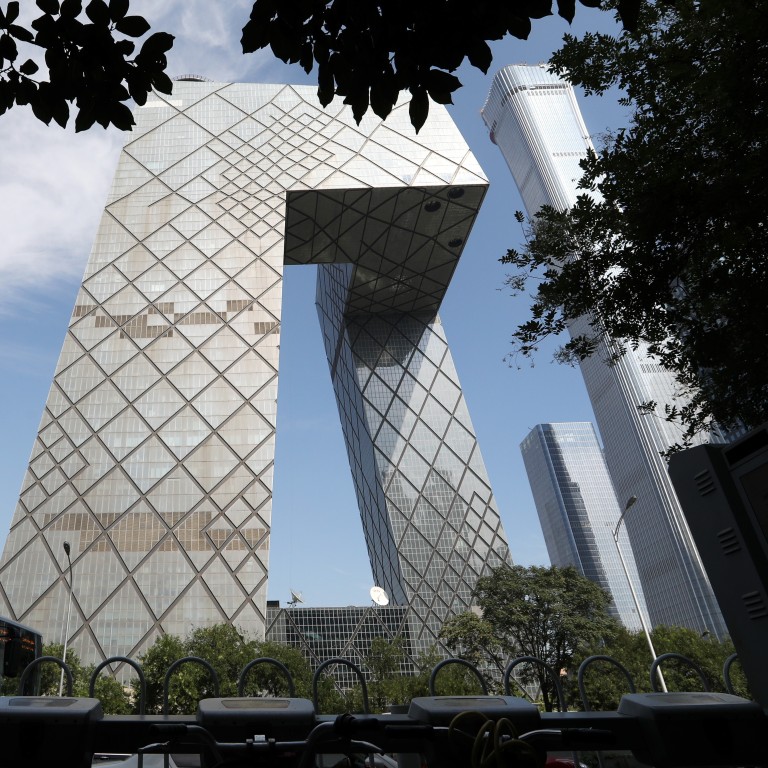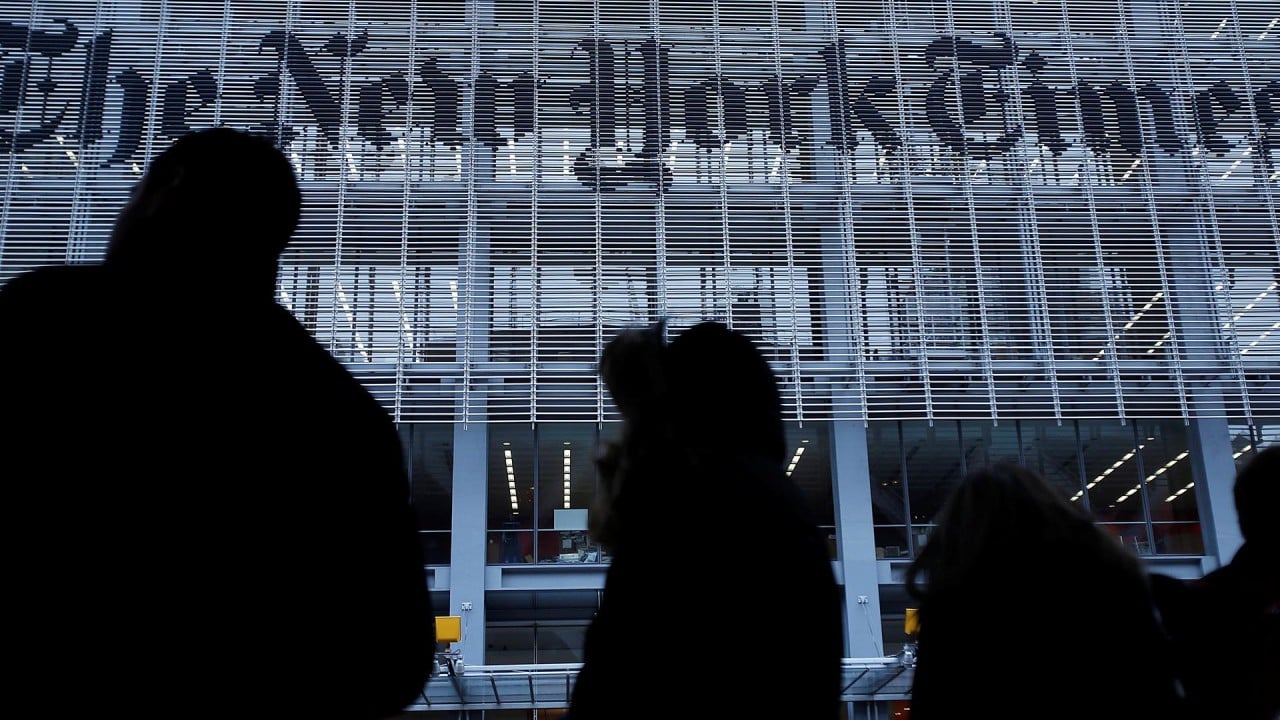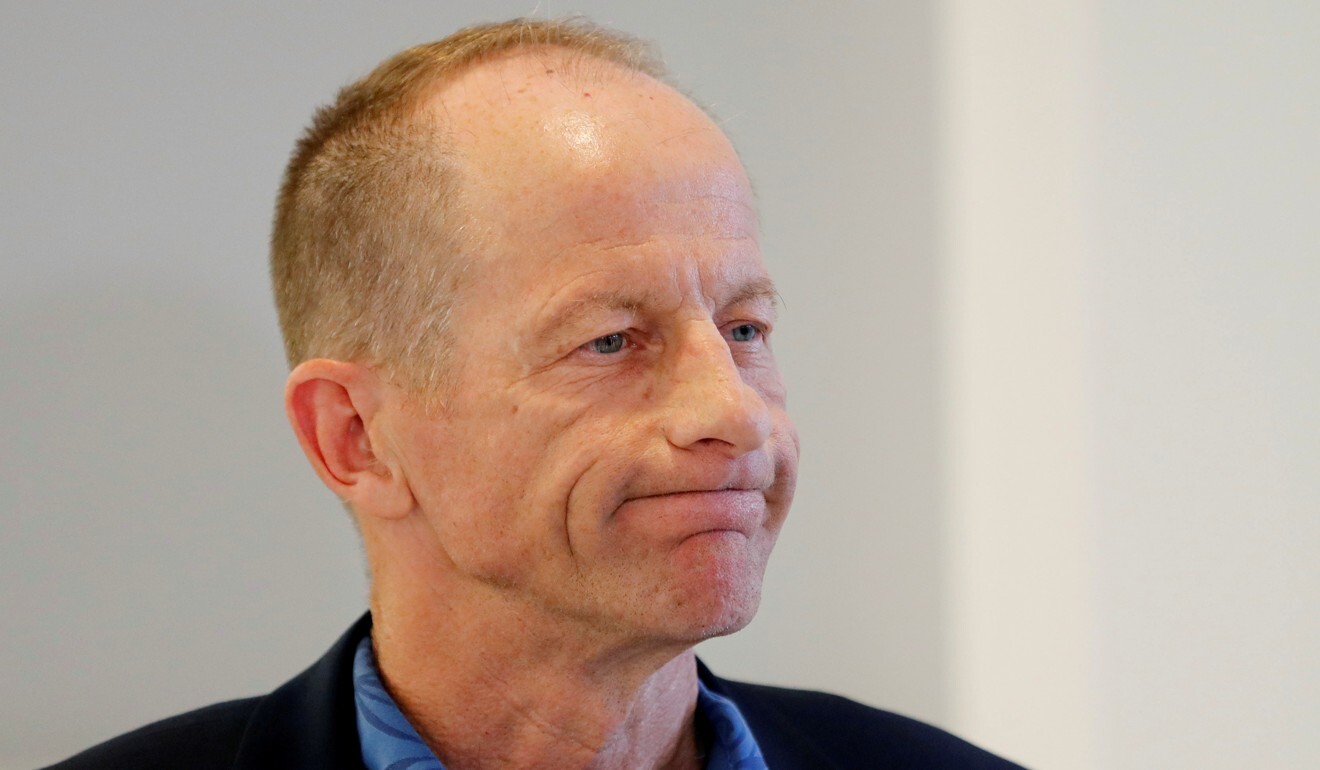
US designates 4 more Chinese media organisations as ‘state propaganda outlets’
- China Central Television, China News Service, People’s Daily and Global Times to be treated as foreign missions on American soil
- The announcement follows similar moves against other Chinese media organisations in February
The United States has designated more Chinese news organisations as “propaganda outlets”, putting them on par with diplomatic missions and building on restrictions the countries have already imposed on each others’ journalists.
The US State Department’s announcement on Monday – targeting China Central Television; China News Service; People’s Daily, the Chinese Communist Party’s (CCP) official mouthpiece; and Global Times, a tabloid published by People’s Daily – follows a similar move against five other Chinese media outlets, including state news agency Xinhua, in February.
“In designating these outlets as foreign missions, we are formally recognising the China party state’s effective control over so-called media entities, including those that operate here in the United States,” David Stilwell, assistant secretary of state for East Asian and Pacific affairs, told reporters.
“While the Chinese Communist Party has always tightly controlled China’s state news agencies, its control has actually tightened in recent years,” he said. “These four entities are not media but propaganda outlets.”

02:24
China expels American journalists from The New York Times, Wall Street Journal and Washington Post
The earlier round had designated China Radio, the English-language newspaper China Daily and CGTN, an English-language broadcaster, as the equivalent of government functionaries. Hai Tian, also included in the first round, is the New York-based distribution agent for People’s Daily.
“This designation recognises [People’s Republic of China] propaganda outlets as foreign missions and increases transparency relating to the CCP and PRC government’s media activities in the United States,” State Department spokeswoman Morgan Ortagus said.
US-based employees of all nine organisations will be treated the same as staff at Beijing’s diplomatic missions, meaning that they will need to register with the State Department as foreign functionaries and report any real estate holdings they have in the US, as per the Foreign Missions Act.
Chinese journalists’ lives disrupted by new US visa restrictions
Chinese foreign ministry spokesman Zhao Lijian told reporters on Tuesday that Beijing would be forced to make an “appropriate response” to the move if the US did not immediately stop and fix its “wrongful practices”.
“This is yet another example of the US’ naked political suppression against Chinese media, and will seriously interfere with Chinese media in their reporting activities in the US,” he said. “This also further exposes the hypocrisy of what the US flaunts as its so-called freedom of press and speech.”
Asked to comment on the move on Monday, China’s embassy in Washington said Chinese media in the US had “long been covering news following the principles of objectivity, impartiality, truthfulness and accuracy”.
“However, for political purposes, the US side has repeatedly acted to restrict and thwart their normal operations,” the embassy said in an emailed response. “The Chinese side urges the US side to immediately change course, undo the damage, and stop its political suppression and arbitrary restrictions on Chinese media organisations.”
In retaliation for the State Department’s move in February, the Chinese foreign ministry in March revoked the press credentials for American journalists from The New York Times, The Wall Street Journal and The Washington Post, giving them 10 days to return their media passes.

Stilwell mentioned that move on Monday, as well as the experience of deputy national security adviser Matthew Pottinger, a Beijing correspondent for seven years during the 1990s and early 2000s with the Journal and Reuters.
“In recent years PRC has imposed increasingly harsh surveillance, harassment and intimidation against Chinese-American and other foreign journalists operating in China,” Stilwell said.
“Anybody who has lived in the PRC understands just how hard it is to get a story and how, if you get too close to a subject – like I think you’ve heard Matt Pottinger’s story when he was a journalist in China – you get these unfortunate visits from the MSS,” Stilwell added, referring to the Ministry of State Security but without citing any details of Pottinger’s experience.
At the same time that China expelled the US journalists, Beijing also declared five US media outlets – Voice of America, the Times, the Journal, the Post and Time magazine – to be foreign government functionaries, identifying them as agencies controlled by Washington.
Journalists with China state broadcaster in US denied passes to cover Congress
Last month, the US Department of Homeland Security said it would limit mainland Chinese journalists employed by non-American news outlets in the country to 90-day work visas, ending the open-ended, single-entry stays that the agency had previously granted to most of them. Extensions were also limited to 90 days.
US targeting of Chinese media outlets began in February 2019, when CGTN America was forced to register under the Foreign Agents Registration Act (FARA).
Four months later, CGTN was denied passes to cover the US Congress under the Radio and Television Correspondents Association’s stepped-up use of FARA, which was passed in 1938 to counter Nazi propaganda.
Additional reporting by Sarah Zheng

